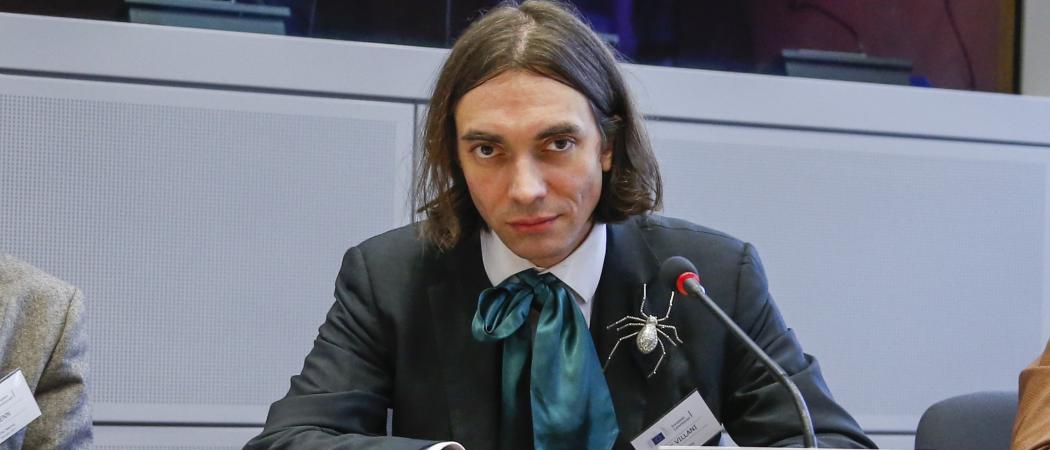‘Mathematics was so natural, politics so brutal,’ says star mathematician and 2010 Fields medallist with sights on becoming the next mayor of Paris

Photo: © European Union, Thierry Roge
Cédric Villani, France’s flamboyant maths whizz, is embracing the role from which many scientists shy away — that of politician.
“Some of my best friends warned me before going into politics: as long as you’re an independent scientist, people will trust your advice. People will now think you’re being dictated by party line. Still, I did it,” Villani, a member of the French Parliament since June 2017, told the Web Summit in Lisbon last week.
Winner in 2010 of the highest honour in mathematics, the Fields Medal, for “proofs of nonlinear Landau damping and convergence to equilibrium for the Boltzmann equation”, Villani has in the past year risen to become a key political figure within Emmanuel Macron’s La République En Marche party.
Once primarily known for his passionate advocacy for the beauty of mathematics and for his wardrobe – a kooky collection of silk bows and spider brooches – Villani now holds ambitions to become the mayor of Paris in 2020.
“I received some big attacks [after I put myself forward] which is a good sign – if people are not scared of you, they don’t attack you,” he said. The contest for the coveted 2020 mayoral seat could see Villani face off against En March colleagues, including government spokesperson Benjamin Griveaux and Digital Minister Mounir Mahjoubi.
Political ambition appears to have crept up on Villani, who describes his younger self as “a shy kid who was very nerdy and would talk little. Mathematics was so natural for me.” Politics, by contrast, has been “so brutal and unexpected. You have to learn about new ways to be interviewed, new difficulties and complications,” he said.
Villani’s decision to run for office last year was inspired by the “chaotic” times in France, with far-right presidential candidate Marine Le Pen’s star on the rise. “I believed I had to do something strong,” Villani said.
While he may have come into his new world with some reluctance, Villani now appears to savour the rough and tumble. “My adversaries said I’m a mathematician; I’m not cut out to be a politician; this guy is just a scientist, and so on. Every time someone says this, it reinforces my determination,” he said.
Macron has marked Villani out for big projects, handing him briefs to reform mathematics education and shape the France’s strategy on artificial intelligence.
“Only 10 years ago, governments thought of AI as an abstract subject,” he said. The attitude was, “Let’s give them (scientists) a few bucks and they’ll be happy. Now, however, they’re thinking how many billions we can get for AI.”
His political experience to date has confirmed Villani’s prejudice that politicians everywhere need a better understanding of science.
“After one year in parliament, I [see I] was completely correct,” he said. “Being inside politics gives me access to all the ministers, and I can be much more efficient here at transmitting skills.”
Other scientists should follow his lead, he says: “The world needs more and more nerds.”





 A unique international forum for public research organisations and companies to connect their external engagement with strategic interests around their R&D system.
A unique international forum for public research organisations and companies to connect their external engagement with strategic interests around their R&D system.